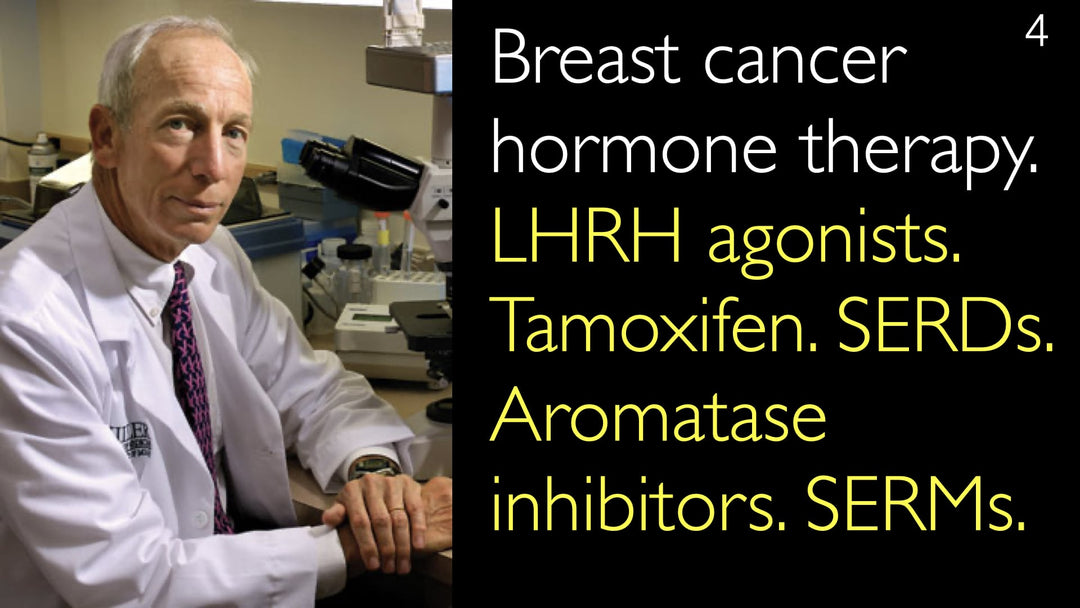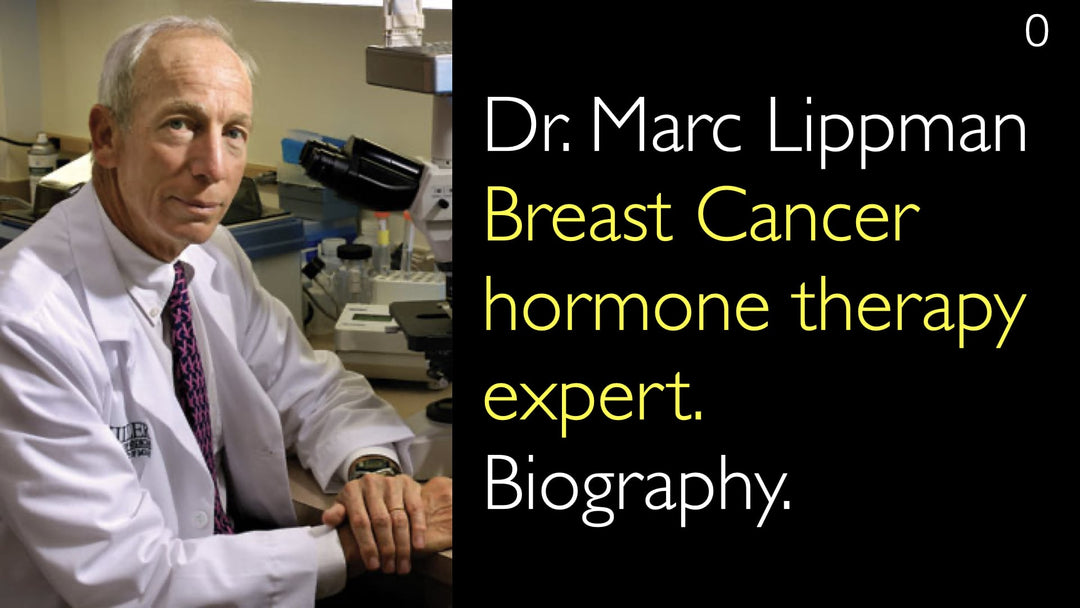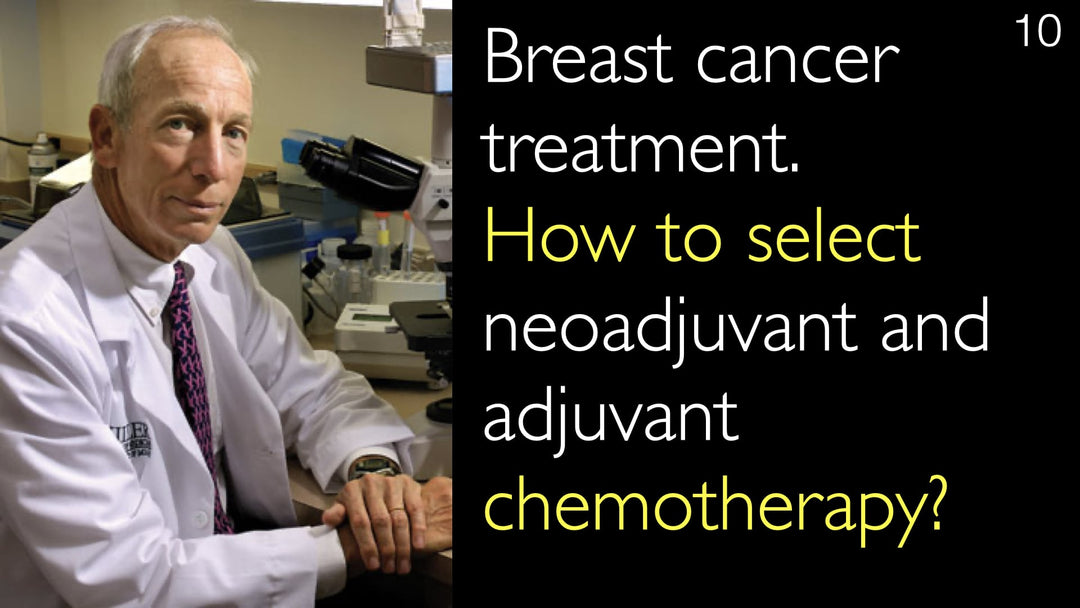Leading expert in breast cancer immunotherapy, Dr. Giuseppe Curigliano, MD, explains how patient selection based on the tumor's immunological profile is critical for success. He details the significant benefits of using immune checkpoint inhibitors in the neoadjuvant setting for triple-negative breast cancer to achieve pathological complete responses and improve survival outcomes. Dr. Curigliano also discusses overcoming immunotherapy resistance by converting "cold" tumors into "hot" tumors using novel strategies like toll-like receptor agonists and explores the future integration of antibody-drug conjugates with immunotherapy.
Immunotherapy for Breast Cancer: Patient Selection, Efficacy, and Overcoming Resistance
Jump To Section
- Immunotherapy Patient Selection in Breast Cancer
- Neoadjuvant vs. Adjuvant Immunotherapy Efficacy
- Triple-Negative Breast Cancer and Immunotherapy
- Future ADC and Immunotherapy Combinations
- Overcoming Immunotherapy Resistance
- Strategies for Converting Cold Tumors
Immunotherapy Patient Selection in Breast Cancer
Selecting the right patients is the cornerstone of successful breast cancer immunotherapy. Dr. Giuseppe Curigliano, MD, emphasizes that treatment should be based on the tumor's immunological milieu. He states that patients whose tumors are enriched with tumor-infiltrating lymphocytes or express PD-L1 are more likely to benefit significantly from immune checkpoint inhibitors.
Neoadjuvant vs. Adjuvant Immunotherapy Efficacy
Immunotherapy shows remarkable promise in the neoadjuvant, or pre-surgical, setting for breast cancer. Dr. Giuseppe Curigliano, MD, explains that using immunotherapy before surgery can increase the rate of pathological complete response, a powerful predictor of long-term survival. He advises that the primary aim should be to cure patients with early breast cancer, making the neoadjuvant approach ideal for leveraging the immune system's power.
Triple-Negative Breast Cancer and Immunotherapy
The most significant advances in breast cancer immunotherapy involve triple-negative breast cancer (TNBC). Dr. Giuseppe Curigliano, MD, points to clinical evidence supporting the combination of chemotherapy and immune checkpoint inhibitors as a neoadjuvant regimen. This approach is particularly effective for this aggressive subtype, which lacks other targeted therapy options, offering new hope for patients at diagnosis.
Future ADC and Immunotherapy Combinations
The future of breast cancer treatment lies in combining powerful modalities. Dr. Giuseppe Curigliano, MD, discusses the potential of using antibody-drug conjugates (ADCs) like sacituzumab govitecan for patients with residual disease after neoadjuvant chemotherapy. He is confident that future strategies will involve combining these highly targeted ADCs with immune checkpoint inhibitors to create more effective and durable treatments for early triple-negative breast cancer.
Overcoming Immunotherapy Resistance
Not all tumors respond to immunotherapy, a challenge known as resistance. Dr. Giuseppe Curigliano, MD, categorizes tumors as "cold" (devoid of immune cells) or "hot" (infiltrated with lymphocytes). Immunotherapy is highly effective in hot tumors but often fails in cold ones. The key challenge is to understand and overcome the biological mechanisms that prevent the immune system from recognizing and attacking these cold tumors.
Strategies for Converting Cold Tumors
Researchers are developing innovative strategies to turn cold tumors hot and overcome immunotherapy resistance. Dr. Giuseppe Curigliano, MD, highlights ongoing studies using intratumoral injections of immunomodulators, such as toll-like receptor 4 (TLR4) or toll-like receptor 7 (TLR7) agonists. This strategy aims to attract tumor-infiltrating lymphocytes into the tumor microenvironment, making it susceptible to a subsequent boost with immune checkpoint inhibitors.
Full Transcript
Dr. Anton Titov, MD: You have all already mentioned immunotherapy for breast cancer. You are a major expert in cancer immunotherapy, focusing on breast cancer but also other solid tumors. Some breast cancer types are more susceptible to immunotherapy compared with other types. How do you use immunotherapy for breast cancer patients? Can you give an overview of how to approach this situation?
Dr. Giuseppe Curigliano, MD: What you need to do, of course, is to select cancer patients according to the immunological milieu. They should be really enriched in tumor-infiltrating lymphocytes or PD-L1 expression. Personally, I believe that the more the tumor is immune-enriched, the more benefit you will have from immunotherapy.
Some data are coming from the neoadjuvant setting of breast cancer treatment, wherein reaching by PD-L1 expression, you also increase the rate of pathological complete response. Potentially, you can also have a better outcome.
Dr. Anton Titov, MD: Does immunotherapy work better in the neoadjuvant setting in breast cancer or in the adjuvant setting of breast cancer?
Dr. Giuseppe Curigliano, MD: Potentially, you can cure some patients in the neoadjuvant therapy setting. So my advice is to use immunotherapy in the early breast cancer setting. We also have data on overall survival in the metastatic setting. But ideally, our aim should be to cure all patients with the early diagnosis of breast cancer.
Dr. Anton Titov, MD: You already mentioned some on that topic. But immunotherapy can help patients with early triple-negative breast cancer. However, immunotherapy is often part of the neoadjuvant chemotherapy regimens for triple-negative breast cancer for patients who are just diagnosed. What is known about the efficacy and particular challenges for immunotherapy in the new diagnosis of triple-negative breast cancer?
Dr. Giuseppe Curigliano, MD: The most advances, I believe, are coming from the neoadjuvant treatment setting, combining chemotherapy plus immune checkpoint inhibitors. But I am sure that in the future, for those patients with residual disease after neoadjuvant chemotherapy, there will be really the opportunity also to use antibody-drug conjugates.
There is a very interesting clinical study ongoing actually for patients with residual breast cancer disease comparing adjuvant capecitabine to adjuvant sacituzumab govitecan. In my personal opinion, in the future, we will have a combination of antibody-drug conjugates plus immune checkpoint inhibitors for early triple-negative breast cancer therapy.
Will they be used together? Yes, they will be used together.
Dr. Anton Titov, MD: So immunotherapy is effective in many cancer types. But sometimes, immunotherapy is not as effective as expected in those tumors which are supposed to be susceptible to immunotherapy. What could explain such resistance to immunotherapy? What are the strategies to overcome resistance to immunotherapy in those tumors that are considered, perhaps overall, to be immunotherapy-sensitive?
Dr. Giuseppe Curigliano, MD: So you have cold tumors, where immunotherapy doesn't work, and hot tumors that are infiltrated by lymphocytes. In hot tumors, immunotherapy is very effective.
How to overcome these mechanisms of resistance in cold tumors? Maybe what we can do is inject cold tumors with immunomodulators that may attract tumor-infiltrating lymphocytes. We are doing some studies now with toll-like receptor four (TLR4) or toll-like receptor seven (TLR7). You can demonstrate that by injecting the tumor you may increase the number of tumor-infiltrating lymphocytes.
The strategy is to infiltrate the tumor with a toll-like receptor agonist and then boost the immune system with immune checkpoint inhibitors. So in this way, you make the tumor more susceptible to the immune checkpoint inhibitors.







